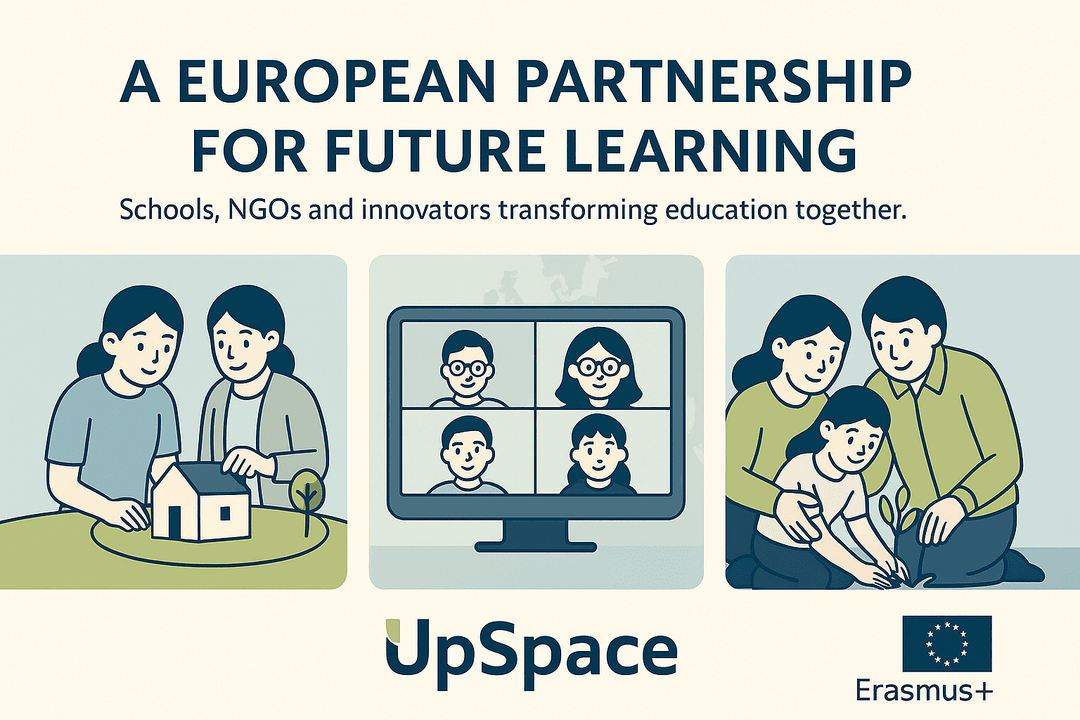UpSpace is a European cooperation project funded under the Erasmus+ programme, Key Action 2 (KA220-SCH), which supports partnerships for innovation and exchange of good practices in the school education sector. It is co-funded by the European Union and coordinated by a consortium of schools and expert organisations from Germany, Greece, Italy and Serbia.
The project aims to rethink how we prepare students for the challenges of the future. It focuses on developing practical, future-oriented learning tools that help teachers and students explore topics like sustainability, upcycling, and urban regeneration—through a hands-on, interdisciplinary approach. Instead of teaching about the future as something distant or abstract, UpSpace brings it into the classroom in concrete, participatory ways. Students engage in creative activities that connect everyday school subjects with real-life environmental and social challenges. Teachers are supported with ready-made materials, training opportunities, and an online platform available in five languages.
UpSpace is built around three main outputs:
- A Future-Oriented Curriculum for teachers, offering methods and resources to integrate sustainability into teaching.
- A Future-Oriented Curriculum for students, delivered through a blended learning format combining classroom work, creative challenges, and practical workshops.
- A multilingual e-learning platform, developed to support open access, cross-border collaboration, and long-term use.
The project is co-funded by the European Union through the Erasmus+ programme and responds directly to the EU’s priorities on green skills, inclusion, and digital transformation in education.
In addition to developing and testing new learning approaches, UpSpace also aims to influence policy by producing practical recommendations based on school-level experience.
The project will run until March 2027, ending with national final events in partner countries and a large international conference and student award ceremony in Serbia.
